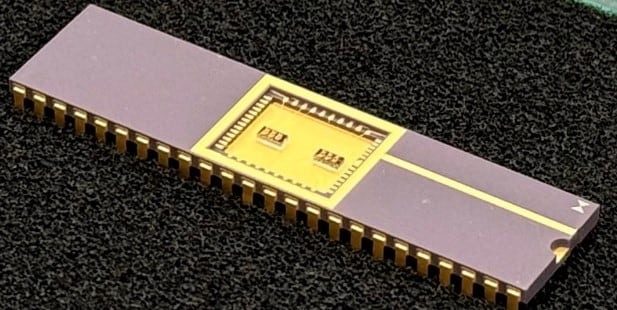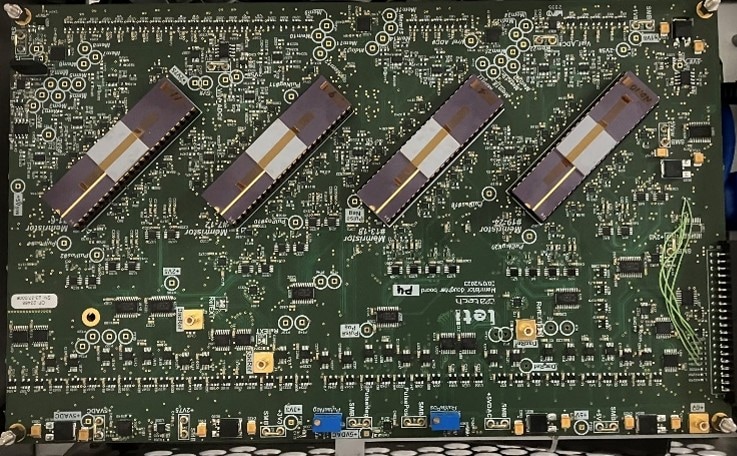TDK develops "spin-memristor" for neuromorphic devices, and collaborates with CEA and Tohoku University to achieve practical application of neuromorphic devices able to reduce power consumption of AI down to 1/100
- TDK has developed a "spin-memristor" with immunity to environmental influences and long-term data storage
- Collaborating with CEA, the “spin-memristor” has been demonstrated to function as the basic element of a neuromorphic device
- For practical development of the technology, TDK is collaborating with the Center for Innovative Integrated Electronic Systems (CIES) at Tohoku University on prototyping in the semiconductor process
- Development is being pursued through an international collaboration between CEA and Tohoku University
October 2, 2024
TDK Corporation (TSE:6762) announces the development of a neuromorphic element called a “spin-memristor” that has very low power consumption. By mimicking the energy-efficient operation of the human brain, this element could cut the power consumption of AI applications down to 1/100th of traditional devices. Collaborating with the French research organization CEA (Alternative Energies and Atomic Energy Commission), TDK has proven that its “spin-memristor” can serve as the basic element of a neuromorphic device. Going forward, TDK will collaborate with the Center for Innovative Integrated Electronic Systems at Tohoku University on the practical development of the technology.
In recent years, digital transformation (DX) has advanced due to the development of AI; it is predicted that energy consumption utilizing big data and AI will boom and make certain issues more apparent — such as the complexity around the computational processing of vast amounts of data, and the increased power consumption associated with the development of AI. TDK strives to contribute to solving these social and environmental issues.
The human brain requires around 20 W of power, which enables it to make more complex decisions than current digital AI processors, but with far lower power consumption. Therefore, TDK set itself a goal to develop a device that electrically simulates the synapses of the human brain: the memristor. While conventional memory elements store data in the form of either 0 or 1, a “spin-memristor” can store data in analog form, just as the brain does. This makes it possible to perform complex computations with ultra-low power consumption. Although memristors for neuromorphic devices already exist, they face issues such as changes in resistance over time, difficulties in controlling the precise writing of data, and the need for control to ensure that data is retained. TDK’s “spin-memristor” solves these issues and is expected to offer immunity to environmental influences and long-term data storage while reducing power consumption by cutting leakage current in existing devices.
To achieve this, TDK started collaborating with the CEA in 2020. With this support, we developed an AI circuit equipped with a “spin-memristor” (3 elements × 2 sets × 4 chips) and confirmed its successful operation through a sound separation demonstration, proving that “spin-memristors” can serve as basic elements in AI circuits. In the demonstration, even when three types of sound (music, speech, and noise) were mixed with arbitrary ratios, the circuit was able to learn and separate the three types of sound in real-time. In general machine learning, AI operations are performed based on data that the AI model has previously been trained on, but TDK’s device is uniquely capable of learning in a changing environment in real-time.

spin-memristor developed by TDK

Now that it has been confirmed that the “spin-memristor” can serve as the basic element of a neuromorphic device, TDK will advance this project from basic development to the next stage, practical application. The manufacturing of these products requires the integration of semiconductor and spintronic manufacturing processes. This integration has been achieved in the manufacturing of MRAM, a product similar to memristors, and TDK has decided to pursue integrated technological development on a joint basis with Tohoku University, a leading academic institution in MRAM research and development.
Comment from Dr. Marc Duranton, Senior Fellow of CEA
“The synergy between TDK and CEA is remarkable, as our complementary expertise fosters a highly creative and constructive collaboration. This research partnership is breaking new ground to develop more sustainable, reliable, highly efficient solutions that will meet the growing demands of modern AI applications.”
Comment from Dr. Tetsuo Endoh, the director of CIES Tohoku University
“AI semiconductors are extremely important for the information-oriented society of the future, but the societal issues are improving AI processing power and reducing power consumption. In light of this social demand, TDK's AI semiconductor development program, which fuses memristor and spintronics technology, is extremely important. We will do our best to contribute to this project with the academic knowledge held by Tohoku University and the manufacturing technology of the 12-inch prototype line.”
Glossary
- Spintronics: A technology that utilizes both the charge and spin of electrons or the spin element alone
Main features and benefits
- Technology that reduces the power consumption of AI computations down to 1/100
- “Spin-memristor” using spintronics
- Novel “spin-memristor” can solve the reliability issues experienced with conventional memristors
- The aim is to solve social issues associated with AI through international collaboration between industry, academia and government
About TDK Corporation
TDK Corporation is a world leader in electronic solutions for the smart society based in Tokyo, Japan. Built on a foundation of material sciences mastery, TDK welcomes societal transformation by resolutely remaining at the forefront of technological evolution and deliberately “Attracting Tomorrow.” It was established in 1935 to commercialize ferrite, a key material in electronic and magnetic products. TDK‘s comprehensive, innovation-driven portfolio features passive components such as ceramic, aluminum electrolytic and film capacitors, as well as magnetics, high-frequency, and piezo and protection devices. The product spectrum also includes sensors and sensor systems such as temperature and pressure, magnetic, and MEMS sensors. In addition, TDK provides power supplies and energy devices, magnetic heads and more. These products are marketed under the product brands TDK, EPCOS, InvenSense, Micronas, Tronics and TDK-Lambda. TDK focuses on demanding markets in automotive, industrial and consumer electronics, and information and communication technology. The company has a network of design and manufacturing locations and sales offices in Asia, Europe, and in North and South America. In fiscal 2024, TDK posted total sales of USD 14.6 billion and employed about 101,000 people worldwide.
Downloads
Contacts for regional media
| Region | Contact | Phone | ||
|---|---|---|---|---|
| Japan | Mr. Tomohiro KANNO | TDK Corporation Tokyo, Japan |
+813 6778-1055 | TDK.PR@tdk.com |

